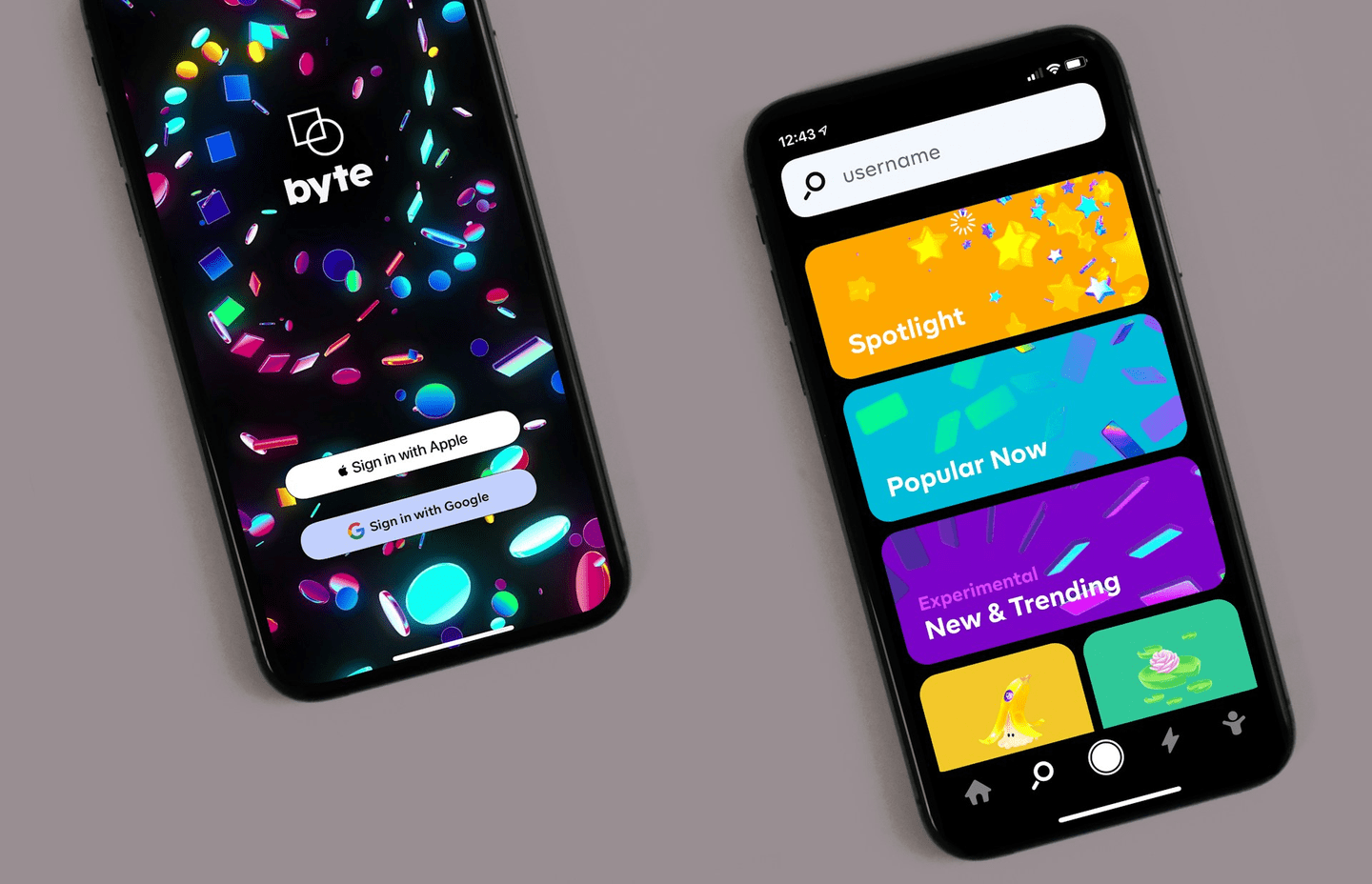.jpg?2026-02-17T14:47:30.411Z)
When Leroy Merlin ran out of hands, InAppStory became the extra ones

The Impact of Deep Learning on Mobile App Personalization
Mark Polskii
As users seek more tailored and intuitive interactions with applications, developers are turning to advanced technologies to meet these demands. Among these, deep learning stands out as a pivotal innovation, revolutionizing how mobile apps understand and predict user preferences and behaviors.
Deep learning, a subset of machine learning, utilizes complex neural networks to analyze and learn from vast amounts of data, enabling unprecedented levels of personalization. This technology not only refines user experience but also helps apps adapt to individual preferences in real-time, thereby increasing user satisfaction and retention.
Understanding Deep Learning

Deep learning is an advanced form of machine learning that models high-level abstractions in data through architectures composed of multiple non-linear transformations. It is a key driver in many of today's AI innovations, from voice recognition systems to sophisticated image analysis technologies.
Basic Concepts of Deep Learning
Deep learning utilizes layers of algorithms called neural networks. These networks are inspired by the structure and function of the human brain and are designed to recognize patterns by simulating human thought processes. Each layer of a neural network processes an aspect of the data, passes it to the next layer, and gradually builds a detailed understanding. The "deep" in deep learning refers to the number of layers through which data is transformed.
Components of Deep Learning Systems
- Neural Networks: At the heart of deep learning are artificial neural networks, which consist of interconnected nodes or neurons that process data sequentially or in parallel across layers.
- Activation Functions: These are mathematical equations that determine whether a neuron should be activated, helping the network make decisions based on the input received.
- Optimization Algorithms: These algorithms adjust the weights of connections within the network to minimize the prediction error, enhancing the learning accuracy over time.
- Loss Functions: Used during training, these functions measure the difference between the network's prediction and the actual data. Minimizing this loss is crucial for improving the model's performance.
Advantages Over Traditional Machine Learning
Deep learning offers several advantages over traditional machine learning models:
- Handling of Unstructured Data: Deep learning excels in dealing with unstructured data such as images, sound, and text, making it ideal for apps that rely on diverse inputs.
- Automatic Feature Extraction: Unlike traditional machine learning, deep learning algorithms automatically detect and prioritize the most relevant features in data, reducing the need for manual intervention and simplifying model development.
- Scalability and Improvement Over Time: Deep learning models generally improve as they are exposed to more data, and their ability to scale with data makes them well-suited for applications with expansive datasets.
The Role of Deep Learning in Mobile App Personalization

Deep learning has significantly impacted the way mobile applications adapt to and serve individual users. By utilizing sophisticated algorithms to analyze user data, apps can offer highly personalized experiences that are both engaging and relevant.
Personalization Features in Mobile Apps
Deep learning enables a variety of personalization features within mobile apps, which can be broadly categorized into three areas:
- Recommendation Systems: Apps use deep learning to analyze user behavior, preferences, and interaction history to recommend content or products. For instance, streaming services like Netflix and Spotify analyze viewing or listening histories to suggest movies, shows, or music tailored to each user's tastes.
- Customized User Interfaces: Apps can adjust their interfaces based on the user’s habits and preferences. For example, a news app might rearrange its layout to prioritize sports news for a sports enthusiast or highlight financial news for a stock market follower.
- Adaptive Notifications: Deep learning algorithms can predict the best times to send notifications based on when users are most likely to engage, enhancing user interaction without becoming intrusive.
Case Studies of Deep Learning in Action
Several high-profile apps have successfully integrated deep learning for personalization:
- Instagram: The platform uses deep learning to personalize the feed for each user, optimizing content relevance and engagement based on past interactions.
- Duolingo: This language learning app uses machine learning algorithms to customize lessons according to the learning speed and the retention rate of each user.
Data Requirements and Processing
Deep learning models require substantial amounts of data to be effective. Mobile apps collect various types of user data, including:
- Behavioral Data: This includes data on app usage patterns, purchase history, and interaction with content.
- Contextual Data: Information such as location, time of day, and device type, which can influence how content is personalized.
- Demographic Data: Basic user information that can help tailor content more broadly.
The processing of this data involves several steps:
- Data Collection: Gathering raw data from user interactions within the app.
- Data Preparation: Cleaning and organizing data into a format suitable for analysis.
- Model Training: Using historical data to train deep learning models to recognize patterns and make predictions.
- Implementation: Applying the trained models in real-time to personalize the app experience for each user.
Technological Innovations Driving Personalization

Deep learning's transformative impact on mobile app personalization is fueled by continuous advancements in technology. These innovations not only enhance the capability of apps to provide personalized experiences but also address some of the inherent challenges like computational demands and data privacy.
Key Technologies and Tools
Several technologies and tools stand out in the development and deployment of deep learning models within mobile environments:
- TensorFlow and PyTorch: These are two of the most popular frameworks for developing deep learning models. TensorFlow, developed by Google, and PyTorch, developed by Facebook, offer robust, scalable platforms for building and training complex models that can be integrated into mobile apps.
- ONNX (Open Neural Network Exchange): This open format allows for model interoperability across different frameworks, making it easier to deploy models across various platforms including mobile environments.
- Core ML and TensorFlow Lite: These tools specifically help in optimizing deep learning models for mobile devices, allowing for efficient execution on local devices without needing to communicate with a server.
Integration of Deep Learning Models in Mobile Environments
Integrating deep learning models into mobile apps involves several considerations:
- Model Optimization: Due to the limited processing power and memory of mobile devices, models must be optimized to run efficiently. Techniques like quantization, which reduces the precision of the model's parameters, and pruning, which removes unnecessary weights, are commonly used.
- Edge Computing: Processing data locally on a device or nearby server (edge computing) rather than in a distant data center can significantly reduce latency and bandwidth use, making apps faster and more responsive.
- Cloud Computing: For more complex computations, some apps rely on cloud-based computing to perform heavy lifting before sending results back to the device, balancing between device capabilities and the power of cloud resources.
Challenges of Deploying Deep Learning in Mobile Apps
While deep learning offers substantial benefits for app personalization, several challenges must be addressed:
- Computational Limitations: Mobile devices have inherent limitations in processing power and battery life. Running complex deep learning models can drain battery quickly and affect the device's performance.
- Data Privacy: Storing and processing sensitive user data pose significant privacy concerns. Developers must ensure data is handled securely, complying with regulations like GDPR and CCPA.
- Model Updating: Keeping the deep learning models updated without frequent app updates poses a logistical challenge. Dynamic updating mechanisms or model training in the cloud can help address this issue.
Benefits of Deep Learning for App Developers and Users
Deep learning significantly enhances the capabilities of mobile apps, providing tangible benefits to both developers and users. By leveraging this advanced technology, developers can create more intuitive and responsive applications that cater to the specific needs and preferences of users.
Enhanced User Engagement and Retention
Deep learning enables mobile apps to offer highly personalized experiences, which are crucial for user engagement and retention:
- Personalized Content Delivery: Apps can predict user preferences and deliver content accordingly, making the user experience more relevant and engaging.
- Optimized Interaction Times: By learning when users are most likely to engage with the app, deep learning can optimize notification times, increasing the chances of user interaction.
Increased Accuracy in User Behavior Prediction
Deep learning algorithms are exceptionally good at pattern recognition, significantly outperforming traditional algorithms in predicting user behavior:
- Predictive Analytics: By analyzing past behavior, deep learning models can forecast future actions of users, allowing developers to tailor app functionalities to these predictions.
- Dynamic Adaptation: Apps can adjust in real-time to user inputs, continually refining their algorithms based on ongoing user interactions, thus maintaining relevance and utility over time.
Improved Personalization Algorithms
Deep learning continually refines its predictions and recommendations, offering a loop of constant improvement:
- Self-Learning Capabilities: As more user data is accumulated, deep learning models self-improve, leading to increasingly accurate personalization over time.
- Granular Targeting: These models can identify subtle patterns in user behavior, enabling finer segmentation and more precise targeting of content and ads.
Conclusion
The integration of deep learning into mobile app personalization has marked a significant advancement in how technology adapts to and enhances user experiences. By harnessing the power of sophisticated neural networks, mobile apps can offer a level of personalization that was previously unattainable, providing users with content, recommendations, and interactions that are uniquely tailored to their preferences and behaviors.

